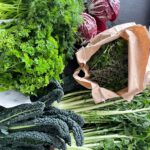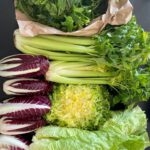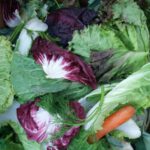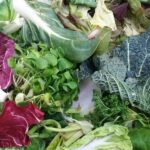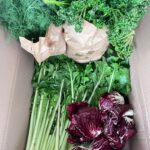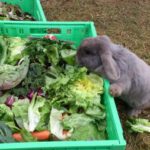Rabbits that do not receive many herbs and meadow plants depend on vegetable feeding. They should be given a variety of leafy vegetables, with a focus on green feed (leafy greens, vegetable tops, etc.). This should be available at all times, alongside hay, in a mix that never runs out. Other vegetables are only a supplement and should be offered in small amounts, no more than a handful per day.
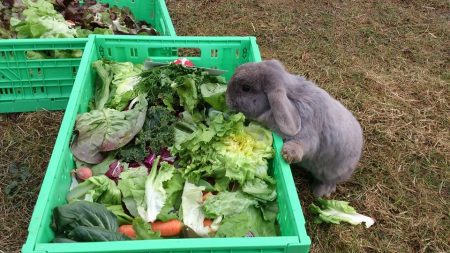
Contents
Which Vegetables Can Be Offered to Rabbits?
The most valuable component is leafy cabbage! This should be fed daily. Cabbage should always be introduced gradually, as it will be tolerated without issue once the rabbit gets used to it. Animals fed with commercial dry food often have digestive issues and should not be given cabbage.
Leafy Cabbages: Chinese cabbage, kale, cauliflower leaves, red cabbage, savoy cabbage, white cabbage, Brussels sprouts, pointed cabbage, stalk cabbage, palm cabbage, pak choi, etc.
In addition to cabbage, bitter salads are also a healthy winter food and should be a main part of the daily diet.
Bitter Leafy Salads: Endive (smooth and curly), frisée, radicchio, chicory, sugarloaf, leaf chicory, dandelion greens.
Other Healthy Salads: Lamb’s lettuce, purslane, Chinese cabbage, Lollo Rosso, oak leaf lettuce, romaine lettuce.
The third main component of the daily diet should be vegetable greens and other leafy greens!
Vegetable Greens: Carrot tops, celery leaves, fennel tops, beet greens, radish greens, etc.
The fourth component should be herbs of all kinds:
Kitchen Herbs: Parsley, basil, mint, dill, oregano, thyme, etc.
Additionally, the diet should be supplemented with fresh twigs regularly!
Twigs: Willow, birch, apple, hazel, etc.
Other healthy leafy greens that can also be fed include: purslane, celery stalks, turnip tops, watercress.
In small amounts, other leafy greens can be given as a supplement but should never make up the main portion and should not be fed daily.
Oxalate-rich leafy vegetables: Swiss chard, spinach, rhubarb.
Lettuce in small amounts: Romaine lettuce, iceberg lettuce.
Other firm vegetables can be offered as a supplement:
Other Cabbage Vegetables: Kohlrabi, broccoli, cauliflower, Romanesco.
Root/Knolled Vegetables: Carrots, parsnips, beets, parsley root, celeriac, kohlrabi, swede (rutabaga), radishes, Jerusalem artichokes, fodder or sugar beets, fennel, etc.
Other vegetables are of little significance for rabbit feeding:
Other Vegetables: Cucumber, tomato, pumpkin, zucchini, bell peppers, etc.
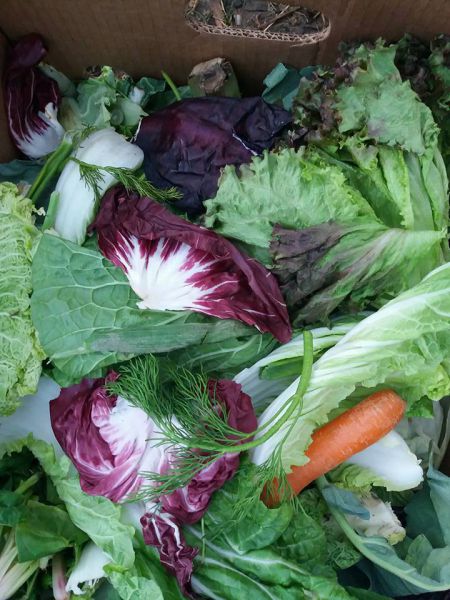
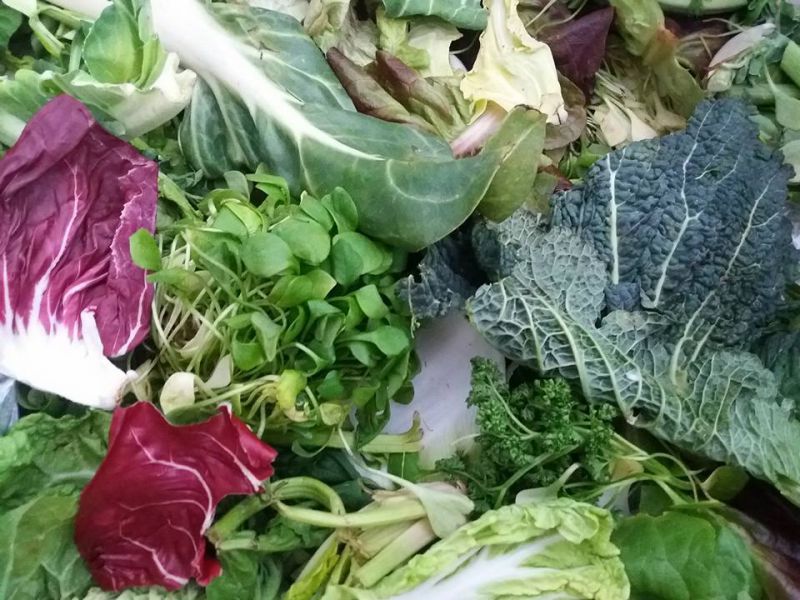
What to Keep in Mind When Feeding Vegetables
Vegetables should always be fresh and never moldy, rotten, or wilted, to prevent digestive issues. Frozen or cooked vegetables are also unsuitable.
It is important to offer a wide variety of vegetables, as this helps ensure that the rabbit can tolerate a broader range. A well-balanced mix is healthier and more easily digestible than a large quantity of a single vegetable. Vegetables with bitter compounds (like endive, chicory, etc.) should be fed in larger amounts.
To identify allergies early on, it is advisable to introduce vegetables gradually. For transitioning to a vegetable diet, start with well-tolerated varieties. It’s best to begin with fennel, then move to carrots, and slowly introduce additional vegetables. Only after the transition should cabbage be introduced and tested.
Organic, homegrown, or locally sourced vegetables are preferable as they are less likely to be contaminated with harmful substances.
Washing the vegetables can remove some pesticides and sprays. Please wash with cold water only, not hot.
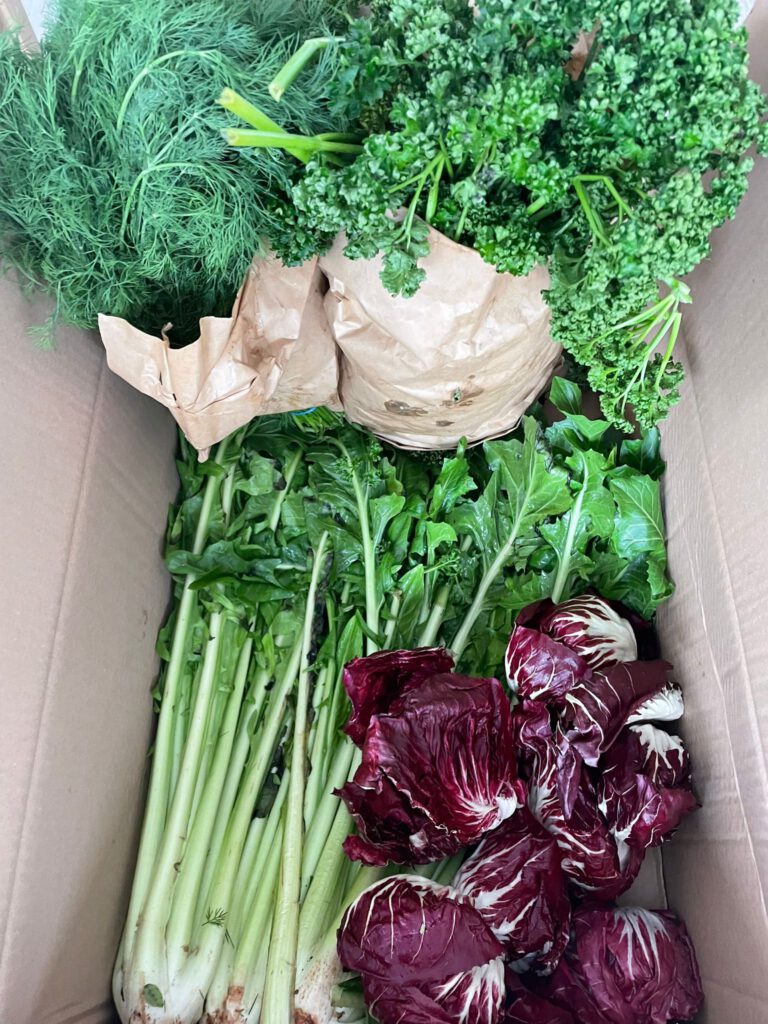
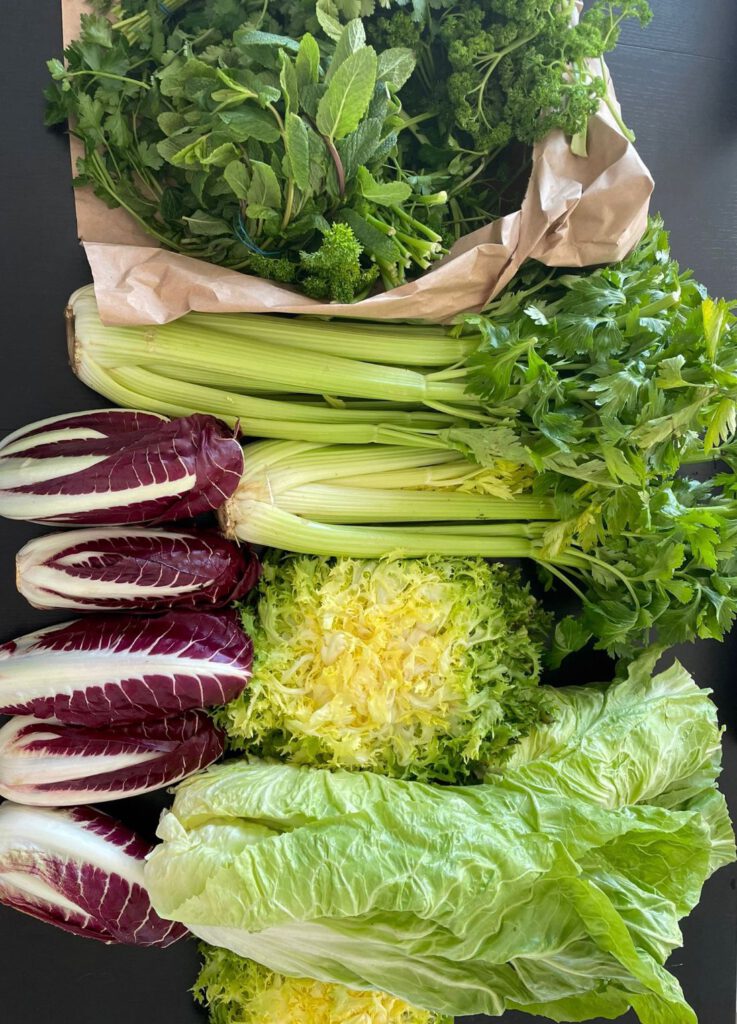
Is Vegetable Feeding Unnatural?
Wild rabbits are adaptive animals that frequently raid vegetable gardens and fields, so vegetables are not insignificant in their diet. However, vegetables are still a lesser substitute for their natural diet, which consists primarily of diverse wild herbs, leaves, and grasses.
Are Vegetables Similar to Wild Herbs and Suitable as a Substitute?
Many vegetables are closely related to meadow herbs. Endive and chicory, for example, are derived from common chicory, and our cultivated carrot is closely related to the wild carrot, a favorite of wild rabbits. The rutabaga is closely related to rapeseed, and Chinese cabbage, turnips, and others are systematically close to wild mustard, a common wild herb. The ancestor of garden lettuces is the wild prickly lettuce, commonly found in the wild, and cultivated cabbage varieties are very similar in composition to wild cabbage, which wild rabbits eat in large quantities. Does it make a big difference if a rabbit eats dandelion from the field or cultivated dandelion? Although, through selective breeding, vegetables generally have reduced fiber and secondary plant compounds, meaning vegetables alone are not a suitable replacement for wild herbs.
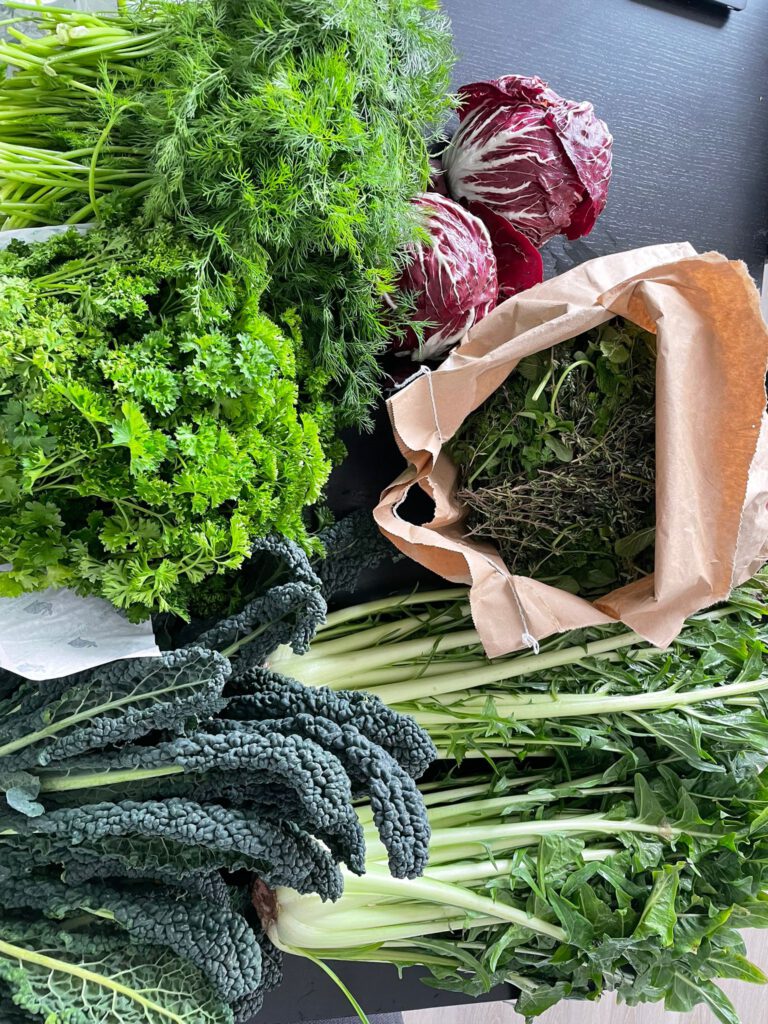
The Right Balance Matters:
Ideally, provide rabbits with a constant variety of green foods (leafy greens, vegetable tops, etc.), hay, twigs, and herbs. They will naturally consume a healthy balance of everything in the right proportions.
Can They Really Eat Cabbage?
It’s often suggested that consuming gas-producing foods like cabbage can lead to bloat (tympany) in rabbits. However, research in various feeding studies has shown that it’s not cabbage itself that causes issues but rather the feeding technique used. When rabbits are gradually, and more importantly, consistently accustomed to cabbage, even large amounts of different cabbage types can be safely included in their diet. Digestive issues, on the other hand, occur when feeding is inconsistent—such as when rabbits go days without fresh food and are then suddenly given a large portion.
Wolf, P. (2016): Answers to Frequently Asked Questions on Feeding Small Mammals. kleintier konkret, 19(S 02), 10-16.




